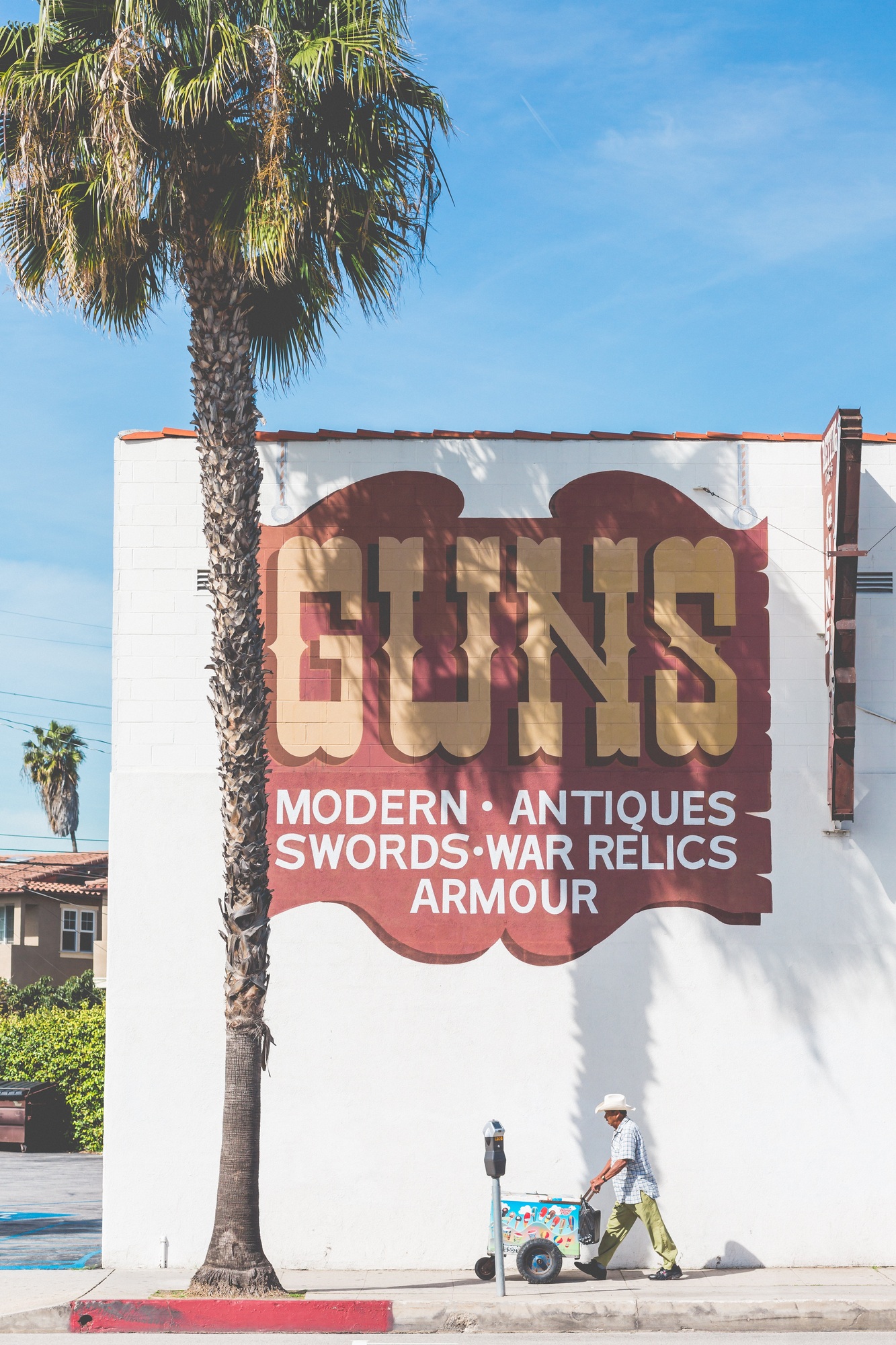Get Pawned: Here’s What You Need to Know About How to Start a Pawn Shop

Are you a Pawn Star fan?
Have you secretly dreamed of taking Aunt Georgina’s collection of porcelain pigs to Chumlee so you can see how much they’re worth?
Or are you a wannabe pawnbroker?
If we’re being realistic, the chances of Aunt Georgina’s pigs being are rare find are slim.
But owning your own pawning business? Now that’s something we’d bet on!
Even if you have no experience owning a business, you can learn how to run one and a pawn store is a lucrative business.
Sure, you’ll need some capital and other startup items but don’t you worry about that!
Well, wait a minute. We can’t give you the capital but we can help you figure out how to start a pawn shop.
Read our mini-guide for entrepreneurs who’ve dreamed of working in the pawning industry. And make sure you send an invite to your grand opening.
A Step Back in Time
Origin of the Word
The word pawn comes from the Latin word pingus, which means, pledge. To pawn is to “give something as security for a loan.”
Note: Don’t confuse pawn shops with those cute little pieces used in the game of chess-they represent armed peasants.
First Pawn Shops
The first pawn shops opened over 3000 years ago in Ancient China. Peasants used them as a way of obtaining short-term loans.
Pawnshops in ancient Greece and Rome helped shopkeepers get the collateral needed for opening small businesses.
The Catholic Church during the Middle Ages didn’t agree with the practice of charging interest, which put a damper on anyone in the money lending business.
Famous Pawnbrokers
Prominent families such as the Lombards of England and the Medicis of Italy became known as money-lending families.
England’s King Edward III famously pawned his jewels to the Lombards in 1388 to help finance war against France, and Queen Isabella of Spain is said to have put up her jewelry as collateral to fund Christopher Columbus’ expeditions to the New World.
Modern Day Pawnbroking
Pawning is a business entrepreneur should look into since there are more than 12,000 pawn shops in the U.S. today.
During the Great Depression, pawn shops were there for people when banks went belly-up and people needed cash. People brought family heirlooms and other beloved personal belongings and traded for cash.
We no longer live in such desperate times but pawn shops are still there for cash-strapped people when they need a little extra help making ends meet.
All pawn shop customers aren’t struggling financially. Customers who own jewelry, artwork, antiques, and other unique items bring them for appraisal. The hope is that the appraisal leads to extra cash in hand.
Other common items brought to pawn shops are musical instruments, computers, and clothing. No, not your grandfather’s old jeans but if you own a bedazzled jacket worn by Elvis the owner of your local pawn store might have some interest.
Why Open a Pawn Store?
Pawn shops are often misunderstood. People assume they prey on individuals who are down on their luck. The truth is pawn shops help a person who needs money for bills due before the next payday.
- Ignore the negative and focus instead on the benefits of owning a pawning business.
- In a way, a pawn store creates multiple income streams for the owner including:
- Loans – customers bring in items, you loan the 40-60% of what you think the item is worth, they pay interest on the loan.
- Buys – earn money on items you purchase with the intent of re-selling
- Sales – earn money when you re-sell something you’ve purchased outright from a customer
- Check cashing – earn up to 3% of any customer’s check you cash.
If you’re organized and manage your business efficiently, you should always have customers from each of these income streams.
Let’s Get Down to Business
Think of this list as the Bs of Business. It doesn’t matter whether you open a pawn store or a car wash, you’ll be more successful if you take care of the items on this list before opening your dors.
- Business Plan
- Business Structure
- Business Taxes
- Business Bank Account
- Business Accounting
- Business Permits
- Business Insurance
- Business Brand
- Business Website
Don’t let the number of things on the list scare you away from your dream of owning your own business. Every entrepreneur goes through a similar list and any good business coach can help you figure out the best start-up plan.
Continue reading and learn more about permits and other documents specific to the pawning industry.
Get a License
It doesn’t matter what state you do business in, your secretary of state will have many requirements that you must meet before and after you open your store.
Pawning is a regulated business.
After you figure out your business structure-sole proprietorship or limited liability company, make sure you register it with the state.
Since you’ll sell items at retail and collect sales tax from your customers, you’ll need a sales tax permit.
The federal government loves a new business. You’ll get your federal tax identification from the IRS.
Many pawn store owners sell guns. The Bureau of Alcohol, Tobacco, Firearms, and Explosives (ATF) expects you to apply for a Federal Firearms License.
Check with your state and ask if they offer a pawnshop licensing kit.
Other Documents
Each state has their own rules and regulations for pawn store owners.
No matter what state you do business in you will submit your information for a background check and your fingerprints.
You may be asked for information regarding your character, employment history, and financial statements.
It seems like a lot of paperwork, doesn’t it?
When you think about the personal property you’ll be taking into your store, the fact that you’ll lend money against much of that property, and the potential for receiving stolen property, it makes more sense.
Speaking of money. This isn’t one of those shoestring startups. You’ll need some collateral to get your doors open.
How Much Money to Start?
Starting a pawn shop requires at least $100,000 in capital.
Why so much?
Those licenses, permits and insurance, and other startup costs add up quickly.
These items will also be on your list of initial expenses:
- Display cases
- Inventory
- Computer
- Security system
- Software – Accounting and Point of Sale (POS)
- Rent
- Deposit for utilities
- Capital for customer loans
- Employee(s)
This list is by no means comprehensive but it should help you get started.
Can I Finance Startup Costs?
Congratulations if you have enough cash capital in your bank account today!
Not many people have $100,000 dollars just sitting in a piggy bank. If you’re a little short, financing may be an option.
Entrepreneurs finance their business costs in a variety of ways. A personal loan from a friend or family member is one option.
The Small Business Administration (SBA) is a great resource for obtaining loans. They don’t loan money but they do work with lenders and can help you navigate the loan application process.
Finally, consider looking for an investor. Angel investors provide capital for startups in exchange for ownership equity or convertible debt.
Once you have your capital secured, you’re ready to shop for a location.
Where Can I Locate My Store?
Before you look at any locations contact your city’s planning department. The importance of this step can’t be stressed enough. If you don’t talk to them before signing a lease, you put your entire business at risk.
Sound serious? It’s a big deal because pawn shops have restrictions on where they can be located.
For example, there must be a minimum distance between your pawn shop and a school.
Think about leasing space in an old pawn shop and make sure it’s a safe area. If the location has already been permitted, chances are you won’t need zoning approval or a bunch of additional permits.
Avoid signing a lease until you pawning licenses are in place. You don’t want the inconvenience of breaking a lease.
I Don’t Have a Business Degree
You don’t need one!
But even a small amount of business experience is helpful.
Much of what you’ll do in your pawn store can be learned either on the job or with the help of a mentor. Mentors are the best when you don’t have experience and want to learn more about working in the industry.
One of the essential skills you’ll need is assessing the value of the items you give loans against and those you buy and sell.
If you’ve spent time selling at flea markets or garage sales, you have the beginning of your skill set. Keep learning by participating in online auctions and scouring sites like Craigslist where you can learn a lot about buying and selling electronics and other large items.
If you’re interested in selling jewelry, spend time learning about precious metals, gemstones, and different styles of jewelry.
Learn as much as you can before you help your first customer but don’t stress if you don’t know as much as you think you should.
No pawn store owner knows everything about how to start a pawn shop before the grand opening.
Ready to Start a Pawn Shop?
Congratulations! You’re a go-getter on your way to work in a lucrative and exciting industry.
We hope we’ve helped you figure how to start a pawn shop-or at least pointed you in the right direction.
We’d love for you to check out our useful tips on a wide range of subjects. If you’re interested in a wealth of information on just about any topic, we’ve most likely written about it.



